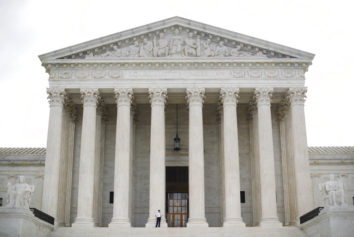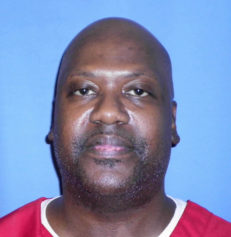After Duane Buck was convicted of murder for the 1995 shooting death of his ex-girlfriend and her acquaintance in Houston, a psychologist testified that blacks were more likely than whites to be violent re-offenders if they were ever released back into the public—a claim emphasized by the prosecutor during closing arguments.
Buck was sentenced to death in 1997, but now a prominent group of advocates, including former Texas Gov. Mark White and one of the original prosecutors, contend his death sentence was unfairly based on race.
More than 100 civil rights leaders, lawyers, politicians and clergy are now calling on the state to step in and give Buck a new sentencing hearing.
“The way to determine punishment in this country is with a fair trial and sentencing, and Mr. Buck did not receive that,” said White, a Democrat and former state attorney general who presided over 19 executions during his tenure as governor from 1983 to 1987. In recent years, he has become more vocal in questioning the propriety of the death penalty in some Texas cases.
White on Wednesday delivered a statement to Harris County District Attorney Mike Anderson, who was not in office at the time of Buck’s 1997 trial, that was signed by more than 100 civil rights leaders, elected officials, clergy and others. White said a new hearing “is absolutely necessary to restore public confidence in the criminal justice system.”
An appeal filed in Buck’s case last week included research showing that at the time of his sentence, black defendants in Houston were three times more likely to be charged with a capital crime than whites. Some call the region the death penalty capital of the U.S. because Harris County, Texas, has carried out 116 executions since 1976, more than any entire state other than Texas itself.
Buck’s attorney Katherine Kase said, “We never say, ‘Oh, you’re African-American, oh you’re Mexican-American, so you should be put to death.’ We all recognize that that would be wrong.”
“The state of Texas cannot condone any form of racial discrimination in the courtroom. The use of race in sentencing poisons the legal process and breeds cynicism in the judiciary,” says the statement delivered by White.
Among those who signed the statement were Linda Geffin, one of the prosecutors in the original trial of Buck, as well as Phyllis Taylor, who was shot by Buck but survived. The statement says Taylor has “forgiven Mr. Buck and does not wish to see him executed.”
NAACP President Ben Jealous, 10 members of the Texas legislature, 17 former prosecutors and judges from Texas also signed.
“This case is a blatant example of racial bias being allowed to seep into a justice system that is supposed to be fair and equitable to all,” Jealous said.
Sara Marie Kinney, spokeswoman for District Attorney Anderson, said the district attorney has given Buck’s lawyers an opportunity to present the case again to the Texas Court of Criminal Appeals, the state’s highest criminal appeals court.
“We simply are waiting on their ruling and we will act accordingly,” she said.
In 2000, when then-Texas Attorney General John Cornyn, now a Republican U.S. senator, said six cases needed to be reopened because of racially charged statements made during the sentencing phase, Buck’s case was in the group. New punishment hearings were held in the other five, but not Buck’s. In those other five, each convict was again sentenced to death.
In Texas, when considering a death sentence, jurors must decide on the future danger of an offender. Buck was within six hours of his execution two years ago, but got a reprieve from the U.S. Supreme Court, which decided months later not to review his case and lifted the reprieve. Now the justices have refused a request from Buck’s lawyers to reconsider that decision.
There currently is no execution date for Buck, who was convicted of killing ex-girlfriend Debra Gardner, 32, and Kenneth Butler, 33, a week after Buck and Gardner broke up. But a family member of one of the victims believes he was fairly convicted and wants him put to death.


